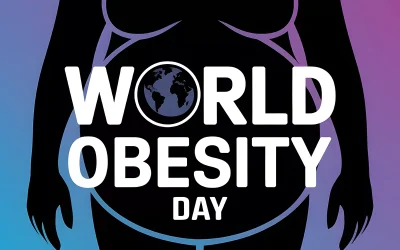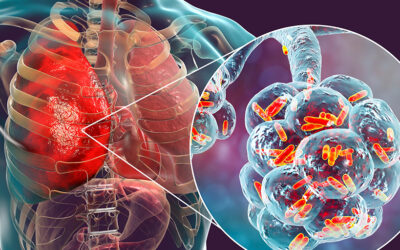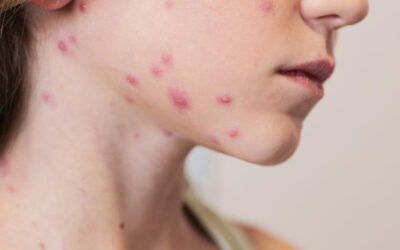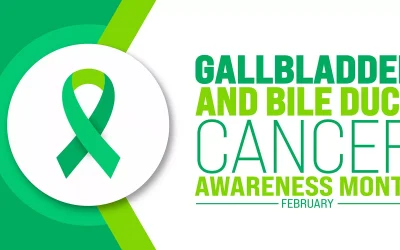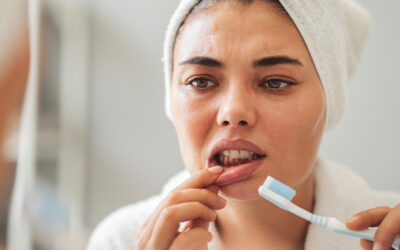Struggling with an Enlarged Prostate? Discover How Your Diet Can Help
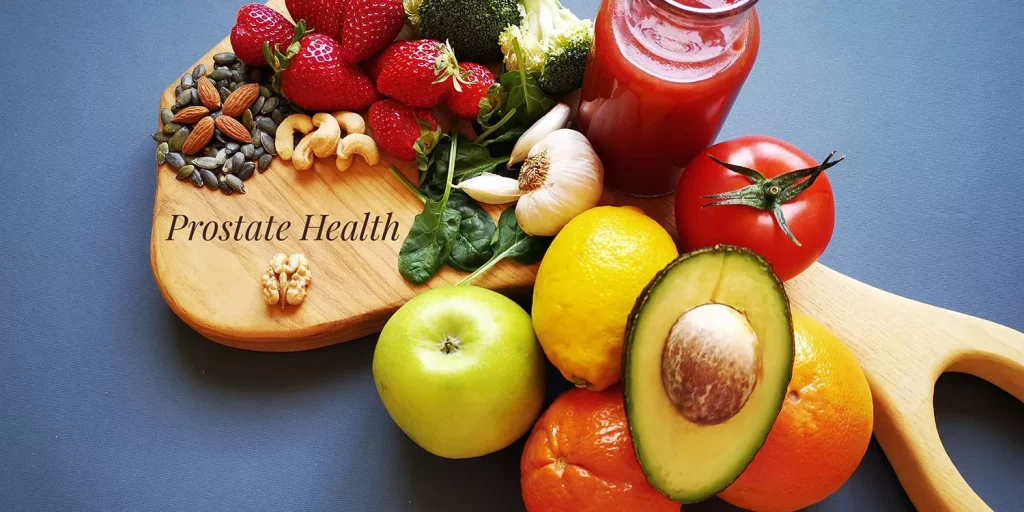
Benign prostatic hyperplasia (BPH), or enlarged prostate, is a non-cancerous condition that is commonly diagnosed in men aged 50 and older. Although not a serious medical concern, an enlarged prostate can cause uncomfortable symptoms, such as a frequent need to urinate and difficulty in urinating. For mild symptoms, urologists advise lifestyle modifications, such as dietary changes, as the first line of treatment. Understanding how dietary choices impact prostate health can empower men to take proactive steps in managing their symptoms. In this blog, we will discuss how diet can help individuals manage an enlarged prostate, highlighting foods to incorporate and remove from their diet.
Table of Contents
ToggleWhat is an Enlarged Prostate?
Enlarged prostate, medically known as benign prostatic hyperplasia (BPH), refers to an increase in the size of the prostate gland. Due to the location of the prostate between the penis and the bladder in the pelvis region, any significant growth results in increased pressure on the bladder as well as the urethra, causing urinary and ejaculation problems. The cause of an enlarged prostate is not fully understood; however, it is widely linked to hormonal changes, specifically low levels of testosterone and high levels of dihydrotestosterone (DHT). Genetic predisposition and lifestyle factors may also play a role in its development. If left untreated, an enlarged prostate can lead to complications such as bladder stones, blood in urine, urinary tract infections, and kidney damage.
What are the Symptoms of an Enlarged Prostate?
Common symptoms of an enlarged prostate include:
- Increased Urinary Frequency: More frequent trips to the restroom
- Difficulty Starting Urination: Discomfort or struggle when initiating urination
- Weak Urinary Stream: Noticeable reduction in the strength of the urine flow
- Interrupted Urination: Inconsistency in urine flow during urination
- Frequent Nighttime Urination: Repeatedly waking up at night to urinate
- Urinary Incontinence: Unintentional urine leakage due to loss of bladder control
- Post-Ejaculation Pain: Discomfort or pain after ejaculation
- Painful Urination: Stinging or burning sensation during urination
- Urinary Retention: Inability to completely empty the bladder
Mild symptoms of an enlarged prostate may not require immediate medical treatment; lifestyle changes, such as adopting a prostate-friendly diet, are usually enough to manage symptoms and support prostate health. For severe symptoms, a combination of medical and lifestyle interventions may be necessary. Regardless of the BPH treatment chosen, urologists advise patients to follow dietary recommendations to support their recovery and maintain their long-term prostate health.
How Does Diet Affect an Enlarged Prostate?
Benign Prostatic Hyperplasia (BPH) and diet may be related because diet affects hormone production and secretion. A healthy diet with whole grains, fruits, cruciferous vegetables, healthy fats, lean meat, and low-fat dairy products can help support hormonal balance and reduce inflammation linked to prostate enlargement. Additionally, certain nutrients in food may improve urinary function and overall prostate health. Vitamins, minerals, and antioxidants are effective in minimising oxidative stress and inflammation in the prostate. However, there are no conclusive studies to establish a direct relationship between diet and an enlarged prostate.
Liquid Intake for a Healthy Prostate
Even though many individuals with benign prostatic hyperplasia reduce their water intake to avoid frequent trips to the restroom, staying hydrated is crucial because it helps flush out toxins. Adopting measures such as limiting liquid intake during nighttime and avoiding caffeinated beverages may help manage BPH symptoms.
Which Foods are Good to Manage Enlarged Prostate?
Here are some foods that may help shrink an enlarged prostate gland:
- Tomatoes: Rich in antioxidants called lycopene, tomatoes whether consumed raw, cooked, or in forms like soups and sauces can help reduce oxidative stress on the prostate gland.
- Citrus: Vitamin-C-rich citruses such as limes, lemons, oranges, and grapefruits help improve prostate health and protect against disease.
- Nuts and Seeds: Nuts rich in selenium and zinc, such as Brazil nuts, sesame seeds, and pumpkin seeds, along with those rich in healthy fats, such as flaxseeds and walnuts, are beneficial for prostate health.
- Berries: Packed with fibre and antioxidants called anthocyanins berries such as strawberries, raspberries, blueberries, and blackberries, help neutralise the effects of free radicals and lower the risk of cancerous changes in the cells of the prostate gland. Their high vitamin C content also boosts immunity and reduces inflammation.
- Broccoli: Rich in glucoraphanin, a phytochemical, broccoli helps lower the risk of DNA cell damage and cancerous changes in the prostate cells.
- Cabbage and Cauliflower: Cruciferous vegetables are rich in vitamins, minerals, antioxidants and phytochemicals, which are effective in lowering inflammation due to an enlarged prostate.
- Legumes: Legumes such as kidney beans, chickpeas, soybeans, lentils, and black beans are good sources of zinc, iron, fibre, and phytoestrogens, which may lower the risk of tumour growth in an enlarged prostate.
- Fish: Indian fish species, such as Rohu, Indian Bangda, and Hilsa, are rich in Omega-3 fatty acids, which not only help lower inflammation but also offer anti-cancer properties. Omega-3 fatty acids in fish help regulate cholesterol levels and support cardiovascular health, which is crucial for overall well-being.
Note: These are generalised recommendations that may not be suitable for all patients with BHP. For personalised guidance, please consult a medical professional.
Which Foods Should Be Avoided with an Enlarged Prostate?
- Salt: A high salt intake increases the severity of urinary tract-related symptoms of benign prostatic hyperplasia.
- Processed Foods: Containing high levels of sodium, unhealthy fats, and preservatives, refined foods, such as cereal, biscuits, sweets, potato chips, and instant soups contribute to inflammation and may exacerbate urinary symptoms. Reducing processed food intake can also aid in maintaining a healthy weight, which is beneficial for managing BPH.
- Caffeine: Overconsumption of beverages such as coffee, black tea, and colas can increase caffeine levels in the blood, as these diuretic agents promote frequent urination.
- Alcohol: Alcohol contains several toxins that are known to have a detrimental effect on various body parts, including the prostate gland. It may even contribute to cancerous changes in the prostate cells.
- Red Meat: Regular consumption of red meat, which is made up of saturated fats, can worsen prostate gland inflammation.
- Sugar and Artificial Sweeteners: Overconsumption of sugar can increase inflammation, whereas certain artificial sweeteners are linked to an increased risk of prostate cancer.
- Vitamin and Mineral Supplements: Some studies suggest that excessive intake of selenium and vitamin E can increase the risk of prostate cancer, but current evidence remains inconclusive. Patients should consult their healthcare provider before starting any supplement regimen to ensure safety and efficacy.
What are the Lifestyle Measures Beyond Diet to Manage Enlarged Prostate?
Managing an enlarged prostate (BPH) involves more than dietary changes. Doctors take a holistic approach that includes education, periodic monitoring, and lifestyle adjustments to enhance quality of life:
- Education About the Condition
Doctors prioritise educating patients about BPH and explaining its causes, symptoms, and progression. A well-informed patient feels less anxious and more empowered to manage their condition. Education also promotes better adherence to treatment plans and lifestyle adjustments.
- Reassurance
A critical aspect of medical care is reassuring patients that BPH symptoms are not indicative of prostate cancer. By addressing this common concern, doctors alleviate fear and help patients focus on effective strategies to manage their symptoms confidently.
- Periodic Monitoring
Doctors recommend regular check-ups to closely monitor the condition’s progression and the effectiveness of treatments. These follow-ups allow timely adjustments to management strategies, ensuring optimal care, early detection of complications, and improved patient outcomes.
- Lifestyle Advice
Individuals with benign prostatic hyperplasia are advised to adopt healthy lifestyle changes that complement medical treatments and enhance overall quality of life:
- Limiting Fluid Intake: Since an enlarged prostate leads to frequent urination and difficulty emptying the bladder, individuals with BPH should avoid drinking more than 2 litres of fluids in a day. It will help reduce unnecessary pressure on the bladder. However, staying hydrated is important; consult a healthcare provider for tailored advice.
- Reduction of Fluid Intake at Specific Times: Not just volume but also frequency of liquid intake, particularly caffeine and alcohol, should be reduced, at least two hours before bedtime and prior to outings. This minimizes nighttime urination (nocturia) and improves sleep quality.
- Trying Relaxing and Double Voiding: Completely emptying the bladder may be difficult for individuals with BPH, but they can try double voiding—urinate once and try to urinate again after a brief pause. Double voiding can help reduce residual urine and the sensation of incomplete emptying.
- Managing Stress: Practising relaxation techniques such as mindful meditation can reduce anxiety and physical tension experienced by some individuals with BPH, helping reduce the urge to urinate more frequently. Other techniques like deep breathing or gentle yoga can also be beneficial.
- Avoiding or Moderating Caffeine and Alcohol: Both substances act as diuretics and bladder irritants, increasing the frequency and urgency of urination. Moderation or avoidance can significantly reduce symptoms.
- Practising Urethral Milking: Gently pressing along the urethra after urination can help reduce post-micturition dribble, a common concern for men with BPH.
- Trying Distraction Techniques: Techniques like penile squeezing, breathing exercises, perineal pressure, or mental tricks can help manage overactive bladder (OAB) symptoms by shifting focus away from urgency.
- Bladder Retraining: Gradually increasing the time between urination helps train the bladder to hold more urine, reducing the frequency of bathroom visits.
- Incorporating Pelvic Floor Exercises: Also known as Kegel exercises, these strengthen the muscles around the bladder and penis, thereby providing better control over urinary flow and reducing incontinence. A physical therapist can provide guidance on performing these exercises correctly.
- Avoid Certain Medications: Individuals with BPH should discuss their current medications with a urologist to identify and avoid medications that may worsen symptoms, such as diuretics, decongestants, or antihistamines. They can help optimise the time of administration or substitute drugs for others that have fewer urinary effects (these recommendations apply especially to diuretics).
- Addressing Impairments: For those with mobility or dexterity challenges, assistive devices or tailored support from healthcare providers can help manage BPH effectively.
- Quitting Smoking: Tobacco products contain harmful toxins that increase inflammation in the body, worsening inflammation and increasing the risk of chronic diseases. Quitting smoking also improves circulation, which benefits overall urinary health.
- Treatment of Constipation: Chronic constipation can worsen urinary symptoms by increasing abdominal pressure. A high-fiber diet and adequate hydration help alleviate this condition.
- Routine Health Check-Up and Screening: Individuals at risk, especially males aged 50 and older, should consult their urologist regularly and discuss the schedule for BPH screenings to ensure early diagnosis and treatment. These screenings can also help identify other potential prostate conditions early.
Final Thoughts
An enlarged prostate is a common condition in males that can often be effectively managed with a combination of lifestyle changes and medical interventions. Even though diet plays a crucial role in relieving symptoms of BPH, it is not a replacement for medical treatment. At Graphic Era Hospital, our urologists develop comprehensive enlarged prostate or BPH treatment plans, including medications, dietary advice, and minimally invasive procedures, tailored to the patient’s medical condition, age, lifestyle, and overall health. A holistic approach ensures better patient outcomes. If you or a loved one are experiencing symptoms of BPH, consult a urologist at Graphic Era Hospital. Call us on our toll-free number 1800-889-7351, request a callback, or book an appointment online.
Frequently Asked Questions (FAQs)
What Are the Best Drinks for Prostate Health?
Non-caffeinated drinks, such as green tea, hibiscus tea, tomato juice, and smoothies made with spinach, apple, and carrots, are rich in antioxidants and Vitamin C, which support prostate health.
Are There Any Herbs or Spices That Help Prevent Prostate Enlargement?
While there are no spices or herbs that can definitively prevent prostate enlargement, spices such as methi, saunf, pudina, haldi, and jeera can support prostate health due to their anti-inflammatory properties.
What Type of Diet Is Best for Benign Prostatic Hyperplasia (BPH)?
A diet comprising a healthy mix of cruciferous vegetables, tomatoes, berries, nuts, olive oil, legumes, whole grains, fish, and citrus fruits is best for individuals with benign prostatic hyperplasia. The Mediterranean diet closely resembles these requirements and is often recommended by nutritionists for BPH. This diet promotes heart health as well, which is closely linked to prostate health.
What Are the Top 10 Drinks to Avoid with an Enlarged Prostate?
Drinks such as coffee, black tea, colas, energy drinks, whole milk, milkshakes, mocktails, beer, wine, and whisky should be avoided by individuals with BPH, as they may increase bladder irritation and exacerbate urinary issues.
Is It Safe to Eat Eggs with BPH?
Although there is no conclusive evidence yet, some studies suggest that eggs may increase the risk of lethal prostate cancer. To err on the side of caution, it is best to limit consumption to 2.5 whole eggs per week or consume only egg whites. Egg yolks are high in cholesterol, which may indirectly impact prostate health. Consult your doctor for personalised advice.
Is Rice Beneficial for Managing BPH?
Brown rice is a good source of fibre and may contribute positively to managing BPH. Limit the consumption of white rice, as it is a starchy-refined product lacking bran and germ. Incorporating whole grains like brown rice can also support heart health, which is closely tied to prostate wellness
Is Banana Good for Treating BPH?
While bananas do not directly contribute to reducing an enlarged prostate, their fibre, potassium, and Vitamin C content aid in maintaining urinary and prostate health.
Is Papaya Beneficial for Managing Prostate Enlargement?
Yes, papaya is a good source of lycopene and may be beneficial in supporting prostate health and reducing inflammation.
Is Whisky Safe for Prostate Health?
No, whisky contains toxins that may elevate prostate cancer risk. Furthermore, it is known to aggravate bladder irritation and urinary symptoms.
By Specialities
- Bariatric Surgery
- Cancer Care
- Cardiology
- Dental
- Dermatology
- Diabetes & Endocrinology
- Endocrinology and Diabetes
- ENT (Ear Nose Throat)
- Eye Care
- Gastroenterology
- Haematology
- Health Awareness
- Health Care
- Health Tips
- Hematology
- Hepatology
- Internal Medicine
- Mental Health and Behavioural Sciences
- Metabolic
- Neonatology
- Nephrology
- Neurology
- Nutrition & Dietetics
- Obstetrics & Gynaecology
- Oncology
- Ophthalmology
- Orthopaedics
- Paediatric
- Physiotherapy & Rehabilitation
- Plastic and Reconstructive Surgery
- Psychology
- Pulmonology
- Rheumatology
- Spine
- Urology
Recent Posts
Need expert medical advice?
Share your details and our healthcare specialists will reach out to assist you.
By proceeding, you acknowledge and agree to our Privacy Policy, Terms of Use, and Disclaimer.

